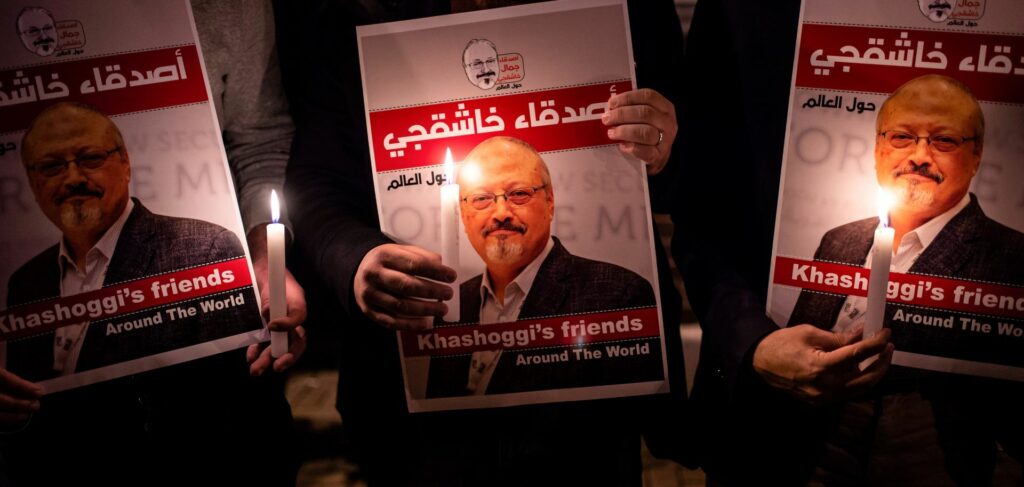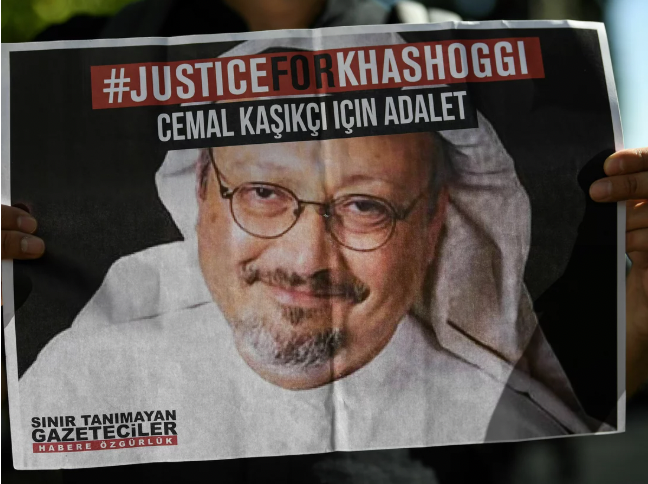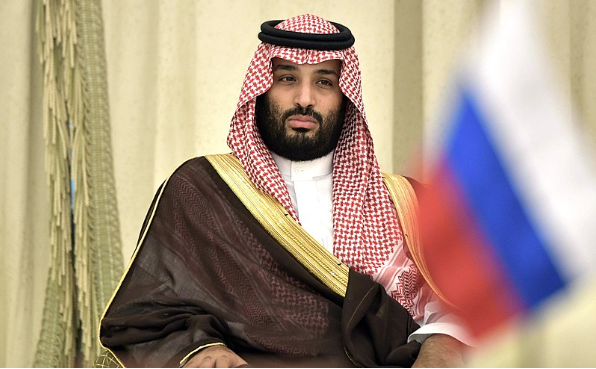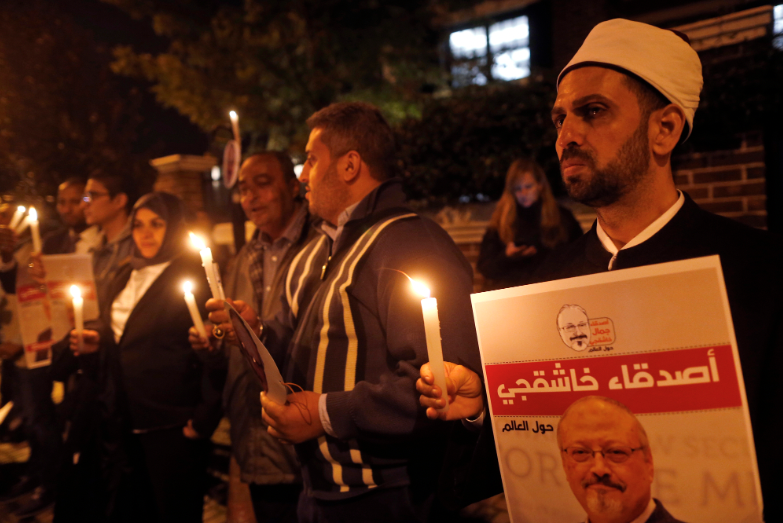Press Freedom, Murder, and American Foreign Policy
Updated Feb. 10, 2025
“Congress shall make no law respecting an establishment of religion, or prohibiting the free exercise thereof; or abridging the freedom of speech, or of the press; or of the right of the people peaceably to assemble, and to petition the Government for a redress of grievances.”

Introduction
Jamal Khashoggi, a U.S.-based Saudi Arabian journalist, was murdered in the Saudi consulate in Istanbul, Turkiye, in 2018. The resulting media storm around the world has continued to raise important questions about who wields the power in international media of discourse.
In many countries, press freedom remains an urgent concern. While many have opened their doors to international press and public demonstrations, many have not. Regime changes, militarized conflicts, and societal pressures have posed significant challenges, often with inherent risks. Intergovernmental organizations such as the United Nations and nongovernmental organizations like Freedom House are the current vehicles for promoting global norms of free speech. However, this effort comes up against the sovereignty of nations, including their choice to use the regulation of speech and expression as a means of control. Global efforts persist to mitigate this tradeoff– but at what cost?
The Incident and Its Aftermath
 Turkish officials say a Saudi murder squad is behind journalist’s death, CNN, October 2018
Turkish officials say a Saudi murder squad is behind journalist’s death, CNN, October 2018 White House declines to submit report to Congress on Khashoggi killing, The Washington Post, February 2019
White House declines to submit report to Congress on Khashoggi killing, The Washington Post, February 2019 Jamal Khashoggi’s murder was a human rights violation by Saudi government, State Department says, USA Today, March 2019
Jamal Khashoggi’s murder was a human rights violation by Saudi government, State Department says, USA Today, March 2019 The assassination of Jamal Khashoggi, The Washington Post, April 2019
The assassination of Jamal Khashoggi, The Washington Post, April 2019 Saudi Crown Prince Is Held Responsible for Khashoggi Killing in U.S. Report, The New York Times, February 2021
Saudi Crown Prince Is Held Responsible for Khashoggi Killing in U.S. Report, The New York Times, February 2021 Five years after Jamal Khashoggi murder, lots of geopolitics, little justice, The Washington Post, October 2023
Five years after Jamal Khashoggi murder, lots of geopolitics, little justice, The Washington Post, October 2023
Key Incidents from the Free Speech Tracker
 Protests outside Turkish ambassador’s residence in Washington turn violent; 11 injured – May 2017
Protests outside Turkish ambassador’s residence in Washington turn violent; 11 injured – May 2017 Cabinet member applauds lack of protests in Saudi Arabia, where protest is illegal – May 2017
Cabinet member applauds lack of protests in Saudi Arabia, where protest is illegal – May 2017 DHS seeks to compile, and subsequently to monitor, a list of journalists, bloggers, and media influencers – April 2018
DHS seeks to compile, and subsequently to monitor, a list of journalists, bloggers, and media influencers – April 2018 Jamal Khashoggi, Saudi critic and Washington Post columnist, murdered in Saudi consulate in Istanbul – October 2018
Jamal Khashoggi, Saudi critic and Washington Post columnist, murdered in Saudi consulate in Istanbul – October 2018 Netflix pulls critical comedy episode from Saudi platform – December 2018
Netflix pulls critical comedy episode from Saudi platform – December 2018 White House announces plan to compile dossier on Washington Post journalists – August 2020
White House announces plan to compile dossier on Washington Post journalists – August 2020 Israeli spyware revealed to have hacked cell phones belonging to journalists, activists, politicians around the world – July 2021
Israeli spyware revealed to have hacked cell phones belonging to journalists, activists, politicians around the world – July 2021 Federal judge dismisses case against Saudi Crown Prince over killing of journalist Jamal Khashoggi, citing sovereign immunity – December 2022
Federal judge dismisses case against Saudi Crown Prince over killing of journalist Jamal Khashoggi, citing sovereign immunity – December 2022 American-Saudi dual citizen released from Saudi Arabian prison over tweets he sent from US – March 2023
American-Saudi dual citizen released from Saudi Arabian prison over tweets he sent from US – March 2023 Somali Journalists Syndicate website shut down by cyberattack using US company RayoByte – August 2023
Somali Journalists Syndicate website shut down by cyberattack using US company RayoByte – August 2023 Dubai-based television company makes cuts to John Oliver ‘Last Week Tonight’ episode – October 2023
Dubai-based television company makes cuts to John Oliver ‘Last Week Tonight’ episode – October 2023

Related News and Comment
 Killing Khashoggi was a warning shot, The Huffington Post, October 2018
Killing Khashoggi was a warning shot, The Huffington Post, October 2018 Saudi Court Issues Final Verdicts in Khashoggi Killing, The New York Times, September 2020
Saudi Court Issues Final Verdicts in Khashoggi Killing, The New York Times, September 2020  Fiancée of slain journalist Jamal Khashoggi calls Biden’s trip to Saudi Arabia “a betrayal”, CBS News, July 2022
Fiancée of slain journalist Jamal Khashoggi calls Biden’s trip to Saudi Arabia “a betrayal”, CBS News, July 2022 Saudi Arabia: Still no justice for state-sanctioned murder of Jamal Khashoggi five years on, Amnesty International, September 2023
Saudi Arabia: Still no justice for state-sanctioned murder of Jamal Khashoggi five years on, Amnesty International, September 2023 5 years after Khashoggi’s murder, advocates say the lack of justice is dangerous, NPR, October 2023
5 years after Khashoggi’s murder, advocates say the lack of justice is dangerous, NPR, October 2023 779 journalists were jailed in 2023, 547 will spend New Year’s Eve in prison, Reporters Without Borders, December 2023
779 journalists were jailed in 2023, 547 will spend New Year’s Eve in prison, Reporters Without Borders, December 2023 Saudi cartoonist gets 23-year prison sentence: rights group, Voice of America, October 2024
Saudi cartoonist gets 23-year prison sentence: rights group, Voice of America, October 2024 Saudi Arabia officially announced as the 2034 World Cup host. Human rights groups warn of ‘unimaginable human cost’, CNN, December 2024
Saudi Arabia officially announced as the 2034 World Cup host. Human rights groups warn of ‘unimaginable human cost’, CNN, December 2024 Jamal Khashoggi’s widow urges Starmer to raise husband’s murder at Saudi meeting, The Guardian, December 2024
Jamal Khashoggi’s widow urges Starmer to raise husband’s murder at Saudi meeting, The Guardian, December 2024
The Role of Free Speech
 Laws Banning “Fake News”: A Growing International Trend?, Free Speech Today, June 2018
Laws Banning “Fake News”: A Growing International Trend?, Free Speech Today, June 2018 Netflix’s Bow to Saudi Censors Comes at a Cost to Free Speech, The New York Times, January 2019
Netflix’s Bow to Saudi Censors Comes at a Cost to Free Speech, The New York Times, January 2019 It Wasn’t Just Khashoggi: A Saudi Prince’s Brutal Drive to Crush Dissent, The New York Times, March 2019
It Wasn’t Just Khashoggi: A Saudi Prince’s Brutal Drive to Crush Dissent, The New York Times, March 2019 Evidence Is Growing That Free Speech Is Declining, Foreign Policy, December 2023
Evidence Is Growing That Free Speech Is Declining, Foreign Policy, December 2023 Saudi Arabia, Freedom on the Net Report, Freedom House, October 2024
Saudi Arabia, Freedom on the Net Report, Freedom House, October 2024 Saudi Arabia presses Florida man to give up US citizenship over critical tweets, family says, Associated Press, January 2025
Saudi Arabia presses Florida man to give up US citizenship over critical tweets, family says, Associated Press, January 2025

Point / Counterpoint
Is it the responsibility of the United States and international institutions to enforce free speech around the world? The incidents above, along with the arguments below, illuminate some of the fundamental tensions related to free speech and foreign policy-related free speech conflicts in the United States.
 The Problem With Making Hate Speech Illegal, Foreign Policy, August 2017
The Problem With Making Hate Speech Illegal, Foreign Policy, August 2017 Netflix Chose a New Market Over Free Speech. That Sets a Disturbing Precedent, The New York Times, January 2019
Netflix Chose a New Market Over Free Speech. That Sets a Disturbing Precedent, The New York Times, January 2019 The U.N. Hates Hate Speech More Than It Loves Free Speech, Foreign Policy, February 2019
The U.N. Hates Hate Speech More Than It Loves Free Speech, Foreign Policy, February 2019 How the mysteries of Khashoggi’s murder have rocked the U.S.-Saudi partnership, The Washington Post, March 2019
How the mysteries of Khashoggi’s murder have rocked the U.S.-Saudi partnership, The Washington Post, March 2019 What does justice for Jamal Khashoggi look like? Unleashing free expression in Saudi Arabia, The Washington Post, February 2021
What does justice for Jamal Khashoggi look like? Unleashing free expression in Saudi Arabia, The Washington Post, February 2021 American Has a Free Speech Problem, The New York Times, March 2022
American Has a Free Speech Problem, The New York Times, March 2022 Why Joe Biden’s fist bump with MBS was such a disaster, CNN, July 2022
Why Joe Biden’s fist bump with MBS was such a disaster, CNN, July 2022 4 years after Khashoggi’s murder, assaults on press freedom are getting worse, The Washington Post, September 2022
4 years after Khashoggi’s murder, assaults on press freedom are getting worse, The Washington Post, September 2022 In Saudi Arabia, no safe harbor for free speech, Access Now, February 2024
In Saudi Arabia, no safe harbor for free speech, Access Now, February 2024 Saudi Arabia: Authorities must free people who are arbitrarily detained for online expression ahead of Internet Governance Forum, Amnesty International, November 2024
Saudi Arabia: Authorities must free people who are arbitrarily detained for online expression ahead of Internet Governance Forum, Amnesty International, November 2024 Don’t Let Autocrats Erase the Internet, Foreign Policy, January 2025
Don’t Let Autocrats Erase the Internet, Foreign Policy, January 2025

Discussion Questions
- Should the United States try to export the First Amendment abroad? In other words, should the United States make respect for free speech and press freedom a core condition for its involvement in diplomatic relations or foreign assistance?
- Is exporting the First Amendment a noble foreign policy objective or an example of cultural imperialism? How might different political systems and expectations affect interpretations of free speech abroad?
- Taking the Minhaj case as an example, do U.S. companies have an obligation to align their conduct with the spirit of the First Amendment when conducting business abroad?
- To what extent has free speech or the First Amendment embedded itself as an American cultural value? Has the U.S. government been too quick to compromise when dealing with the brutal actions of a country that is an oil supplier and arms purchaser?
- The U.S. Department of Homeland Security planned to create a list of journalists and media influencers, allegedly for national security purposes. Many journalists expressed serious concern over how the list might be used to intimidate or manipulate the media. How should the U.S. balance press freedom with national security concerns? In what other situations might this trade-off arise?
- Should the U.S. take a stronger stance in protecting foreign journalists under threat, such as through asylum policies or sanctions against oppressive governments?
- How should the U.S. respond to efforts by authoritarian regimes to spread propaganda or influence foreign media, particularly in democracies? Is this a matter of press freedom or blatant political interference?
- What role should the U.S. government play in combating disinformation campaigns targeting journalists? How can this be done without infringing on freedom of the press?
- Does the return of Donald Trump to the White House for a second presidential term increase the risk of more murders of international journalists who rock the boat, as Jamal Khashoggi did?
Activity
Click on these themes below: Foreign Policy + Violence/Threats
Discuss: What patterns emerge? Does this confluence of stories with these filters tell us about Free Speech issues in the United States? Free Speech and foreign policy?